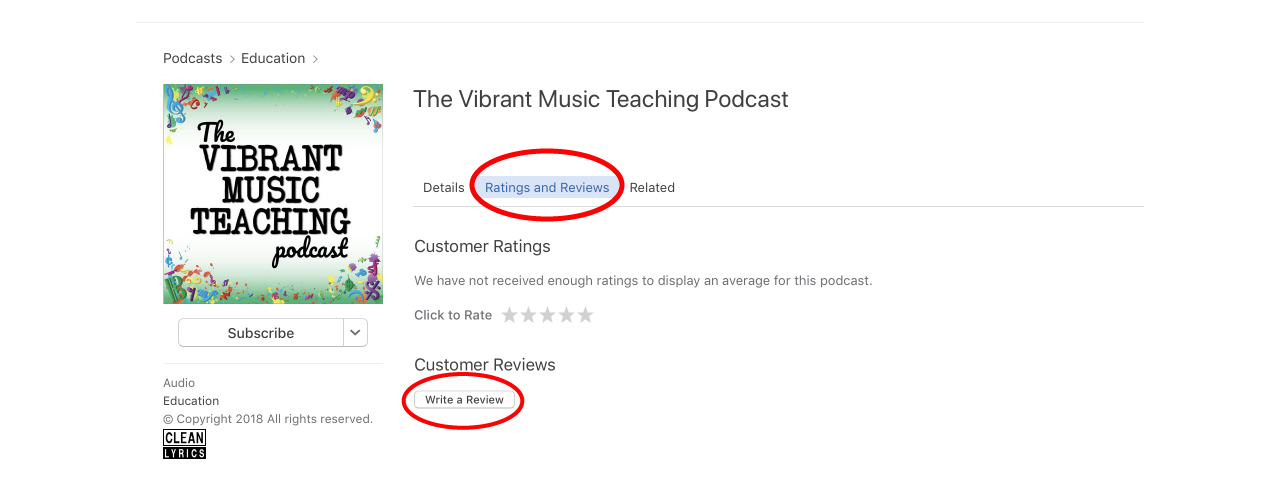Some students can be very reluctant to singing in their music lessons. Perhaps someone told them they couldn’t sing or they’re just shy in general. Find out how to help those students in this episode.

Relevant Resources
- Solfa for Piano Teachers…for Beginners
- Singing Games with the Full Solfa Scales
- 4 Awesome Uses for Singing in the Piano Studio
- VMT027: 5 Ways to use solfa singing in your music lessons
FULL TRANSCRIPT
Click on any word to jump to that point in the audio. 🙂
VMT Ep 50 – How to encourage reluctant or shy singers.mp3 | Convert audio-to-text with Sonix
Vibrant vibrant vibrant music teaching proven and practical tips strategies than ideas from these countries.
You’re listening to Episode 50 of the vibrant music teaching podcast. I’m Nicola Cantan and in this show we’re talking about shy and reluctant singers.
Hey there wonderful teachers. So last week we talked about four different ideas for incorporating vocal warm ups into your studio forgetting your students singing more often. But what if they won’t sing. Do you have any students like that. Do you have any students who literally point blank refuse or sing in such a tiny little whisper that you can barely hear them.
Or perhaps you have students who as I mentioned last week can’t match pitch can’t sing. For all intents and purposes what do you do with those students. How can you bring the joy of singing to them. Should you just gave up. Well I don’t believe you should and I feel like a lot of teachers end up doing that. You have those students who don’t want to sing and I would have been one of them because I was super shy as a child especially of singing and my teachers probably gave me a pass right. They didn’t make me sing because I seemed really uncomfortable about it. And while I don’t think we should be making students uncomfortable I do think there’s a way to get them to find singing normal because it is and something has made them think that it’s embarrassing. Some of them are just students who are shy in general. And that’s one thing. But a lot of students have at some point been made fun of or had some mention to them in school about them not being a good singer or perhaps they’ve even being in a choir in school where they were told to mime. I won’t go on and on about that because I could. I think it’s disgraceful if you’re not going to teach singing don’t teach it otherwise actually teach people still saying don’t ask children who can’t match pitch yet to mime it’s so damaging anyway.
Students come to us with some kind of background we’re singing some relationship with it. And often it’s not the best. So what are we going to do with these students how we’re going to get them singing if we’re determined to do it. Well first thing I want to say about this is that it’s tempting to give these students too much support when it comes to singing because students are shy will often aid them with the piano and our voice may be as well. At the same time and it’s actually much better for you to just sing to support them because it leaves them a little bit more on their own. They can actually hear themselves and they can grow in confidence. While we don’t want to push too hard with singing exercises with kids who are shy about it or reluctant to do it we also don’t want to give them too much backup because then they will not develop any strength in their voice. They’ll not start singing it. So what you want to do with these students is don’t use the piano as much as possible. Sing along with them yourself but over time start trying sometimes singing softer and just see maybe they’ll pick up their voice to fill in the gap. Maybe they won’t but you won’t know unless you try.
So every so often you try that out and over time eventually they will probably start just singing with that little bit more power. So that’s the first tip is don’t use the piano. This act or another instrument for that matter. The second is to make it a bit silly and some of the exercises I mentioned last week in episode 49 utilize this right making animal noises during sirens and following squiggles on the board. These are all great ways to make it fun and interactive and not feel like singing is in school. I mean maybe they’re singing is like that it’s golden. That’s great if it is but to make it not feel like a dry singing exercise and not feel like they’re on show because we’re all just making silly mooing sounds right. You can also try out kazoos as a great way to get students to hum who otherwise are so reluctant they won’t even do that. You have to. You have to make it because you work. You basically have to sing. So they’re a great trick for those really reluctant singers to get them to try things out. Another way to help these shy singers is basically to distract them so the silliness starts to help with that. You can also use games and actions to go along with your songs to distract to these singers for what they’re actually doing i.e.
singing right. They might just get into the zone of doing a singing game or playing an interactive board game or listening out for certain things. Anything you can do to add an extra layer to it where singing is not the event the event is we’re playing this game and we just need to sing in order to play the game right. There’s a key distinction there where they don’t feel like they’re being tested or like they’re giving some performance by singing. It’s just part of the game that you’re doing together. Another great way to distract students rightly or make them feel less on show is for them to be singing as part of a group. Now I did say not to support students too much. So you do need students to eventually sing on their own. But singing as part of a group can be a great transition. Just don’t include the piano. Don’t give the that extra layer of support have you students singing groups whenever they’re together. So if you have regular group workshops which we’ve talked about before on the podcast or if you do buddy lessons like me or partner lessons or you have a duet to week always incorporate some amount of singing there because the stronger singer will normally make the weaker singer not feel on show feel like they can just follow along.
And sometimes that’s the best way to be right to feel like OK well I can’t follow this person. They stay with them and they end up singing quite well. So those are a few ideas to make singing easier on your shy or reluctant students. But here’s the main thing. Just keep going. That’s the most important element. Too often we just give up too easily. We don’t want to push students and force them but we do want to make it normal. We want to normalize it. We want to make it just standard. We just sing in music lessons. That’s just what we do. And if it starts to feel like that eventually your student will learn to sing out a little bit more. Or at least feel confident that they can sing in tune and that they have an ear so to speak that they’re not tone deaf. If some silly person has told them that. So just keep going. Don’t give up after one week. Don’t give up after one month when your student is not really singing along with you or barely whispering. Just keep singing keep doing it as a standard part of your lessons. And if your student is super shy for the first wild sing it so blast it with your own voice saying act yourself singing loud singing proudly.
I often joke while half joke it is true that eventually once students hear my voice and how not so fabulous it is they go. All right well where you just have a bash at it here I guess we just have a go. I could say good pitch obviously but I don’t have some fabulous amazing trained voice and I think that actually can be helpful because it’s not exactly intimidating to students. They can probably sing better than me if they just give it a bit of a go. Right.
So sing at yourself with strength especially for the first while with your shy singers. So there’s not too much demand on them. And just keep going. Just keep incorporating it in every lesson or as many as you possibly can. These things are nerve racking when we don’t do them. The more practice they get the easier it will get. When you are singing as well don’t point out that they are not or don’t criticize. And I would say that old phrase of two stars in a wish right or three stars in a way I can’t remember right now which no it is but I would say no wishes for their singing unless you’re actually a voice teacher and then sure but this is not their primary instrument. They don’t have to get that much better at it. We don’t have an onus on us basically to improve their singing voice although it will be helpful. And so general gradual incremental progress is fine. You don’t need to specifically ask them to sing louder or try to fix their pitch. Basically don’t point anything out. I would just keep going. I find immersion is the best approach here of just a little bit at a time each and every week because then students don’t feel like this. It’s the speaker ordeal. They don’t get an even more negative view of what singing means and they do improve over time. If you just keep at it. So those are my tips for shy singers don’t use the piano use silliness such as kazoos animal noises sirens and squiggles distract them with games and actions that they have to do while they sing do singing as much as you can in group time group workshops buddy lessons partner lessons duets. And just keep going no matter what. I hope those tips will help you improve your shy singers and get them singing out that little bit more over time. This is actually Episode 50 of the vibrant music teaching podcast so I just wanted to take a moment to thank you so much for listening.
Whether you’ve been listening right from the get go or your more recent subscriber or you’ve just found it but you’ve gone back and binge the entire series then. Thank you so much for listening. I really appreciate it. And I would love it if you would share it with just one teacher. Friend just spread the word a little bit. Send the podcast. Whichever was your favorite episode to one of your teaching friends that you think could benefit from it.
Thanks again and I’ll see you back here next week for Episode 51. If you’re listening to this episode as it goes live there’s just a couple of days left to sign up for my 12 bar blues workshop. at vibrantmusicteaching.com/blues. And if you remember you can catch the replay of this and any other webinars at anytime inside the video library.
Convert audio to text with Sonix. Sonix is the best online audio transcription software
Sonix accurately transcribed the audio file, “VMT Ep 50 – How to encourage reluctant or shy singers.mp3” , using cutting-edge AI. Get a near-perfect transcript in minutes, not hours or days when you use Sonix. Sonix is the industry-leading audio-to-text converter. Signing up for a free trial is easy.
Convert mp3 to text with Sonix
For audio files (such as “VMT Ep 50 – How to encourage reluctant or shy singers.mp3”), thousands of researchers and podcasters use Sonix to automatically transcribe mp3 their audio files. Easily convert your mp3 file to text or docx to make your media content more accessible to listeners.
Best audio transcription software: Sonix
Researching what is “the best audio transcription software” can be a little overwhelming. There are a lot of different solutions. If you are looking for a great way to convert mp3 to text , we think that you should try Sonix. They use the latest AI technology to transcribe your audio and are one my favorite pieces of online software.

Subscribe and Review the Vibrant Music Teaching Podcast
Subscribe to the podcast in Apple Podcasts or iTunes here so you don’t miss the next episode and you can take it with you as you run errands, clean the house or walk the dog. If you’re enjoying the podcast please take a moment to leave a review and a rating.
- Click here to open the podcast page
- Click “view in iTunes” if it doesn’t automatically open there
- Click “Ratings and Reviews” and leave a review

What did you think of this episode?
Let me know in the Vibrant Music Studio Teachers group on Facebook. I’ll see you there. 🙂